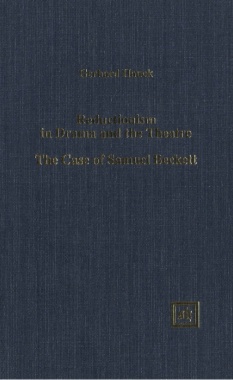A detailed examination of Beckett's dramas based on reductionist models in the arts and sciences. Various experimental aspects of composition and production are shown to reflect Beckett?s search for a minimal theater of silence and inaction, as well as his epistemological uncertainty.
- Cover
- Contents
- Acknowledgements
- Introduction
- Part1: Principles and Methods of Reductionism
- 1. Reductionism in the Natural Sciences
- 2. Reductionism in the Human Sciences
- 3. Critique of Reductionism
- Part II: Towards an Epistemology of Drama and the Theatre
- 1. The Arts and the Sciences
- 2. The Theatre as Practical Science
- 3. The Theatre and Truth
- 4. Analysis in Action on a Stage of Observation
- 5. Processing the Product
- Part III: Samuel Beckett: Less. Ever Less
- Chronology of Beckett's Dramatic Works
- Section A: A Celebration of Diminution
- 1. Reductions from Conventional Drama to Godot
- 2. Reductions from Godot to What Where
- 3. Reductions from Beginning to End
- 4. Draft Manuscript Reductions
- 5. Directorial Reductions
- 6. Reductions to Other Art Forms
- Section B: Epistemology of Indeterminacy
- Summary and Conclusion
- Appendix
- Bibliography

